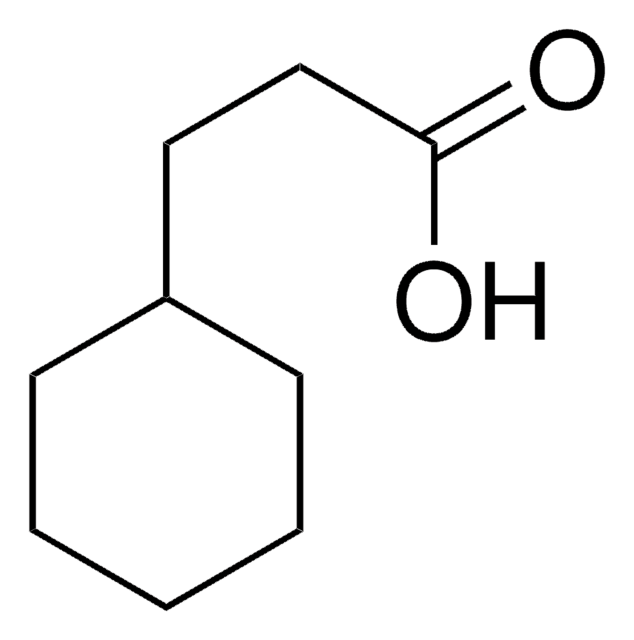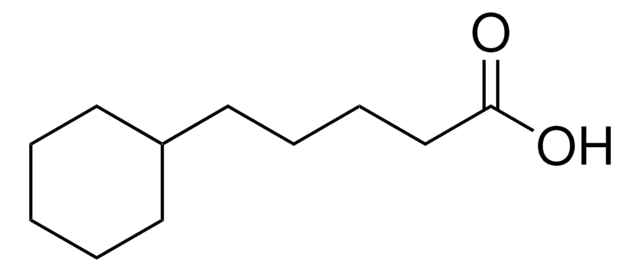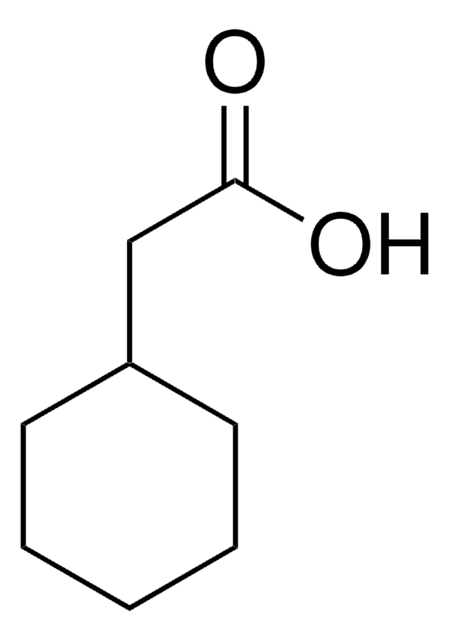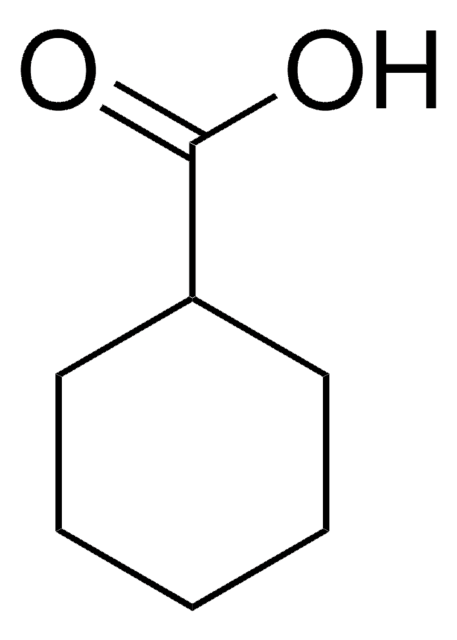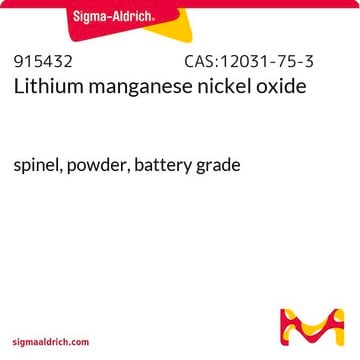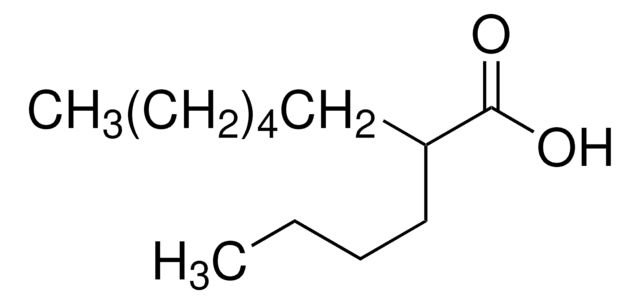127612
Cyclohexanebutyric acid
99%
Synonym(s):
4-Cyclohexylbutyric acid
Sign Into View Organizational & Contract Pricing
All Photos(2)
About This Item
Linear Formula:
C6H11(CH2)3CO2H
CAS Number:
Molecular Weight:
170.25
Beilstein:
2041731
EC Number:
MDL number:
UNSPSC Code:
12352100
PubChem Substance ID:
NACRES:
NA.22
Recommended Products
Assay
99%
form
solid
mp
30-32 °C (lit.)
functional group
carboxylic acid
SMILES string
OC(=O)CCCC1CCCCC1
InChI
1S/C10H18O2/c11-10(12)8-4-7-9-5-2-1-3-6-9/h9H,1-8H2,(H,11,12)
InChI key
UVZMNGNFERVGRC-UHFFFAOYSA-N
Looking for similar products? Visit Product Comparison Guide
Application
Cyclohexanebutyric acid was used in the growth of Arthrobacter sp. strain CA1. It was also used in the production of polyhydroxyalkanoates (PHAs).
Storage Class Code
11 - Combustible Solids
WGK
WGK 3
Flash Point(F)
230.0 °F - closed cup
Flash Point(C)
110 °C - closed cup
Personal Protective Equipment
dust mask type N95 (US), Eyeshields, Gloves
Choose from one of the most recent versions:
Already Own This Product?
Find documentation for the products that you have recently purchased in the Document Library.
Customers Also Viewed
D Y Kim et al.
International journal of biological macromolecules, 29(3), 145-150 (2001-10-09)
Production of polyhydroxyalkanoates (PHAs) substituted with cyclohexyl groups by Pseudomonas oleovorans grown with 4-cyclohexylbutyric acid (4-CHB) and its mixtures with nonanoic acid (NA) was investigated. Addition of NA to medium gave rise to an increase in the total concentration of
H J Ougham et al.
Journal of bacteriology, 150(3), 1172-1182 (1982-06-01)
A strain of Arthrobacter was isolated by enrichment culture with cyclohexaneacetate as the sole source of carbon and grew with a doubling time of 4.2 h. In addition to growing with cyclohexaneacetate, the organism also grew with cyclohexanebutyrate at concentrations
Dean M Quesnel et al.
Chemosphere, 84(4), 504-511 (2011-04-05)
Naphthenic acids (NAs) are a major contributor to toxicity in tailings waste generated from bitumen production in the Athabasca Oil Sands region. While investigations have shown that bacteria can biodegrade NAs and reduce tailings toxicity, the potential of algae to
Our team of scientists has experience in all areas of research including Life Science, Material Science, Chemical Synthesis, Chromatography, Analytical and many others.
Contact Technical Service